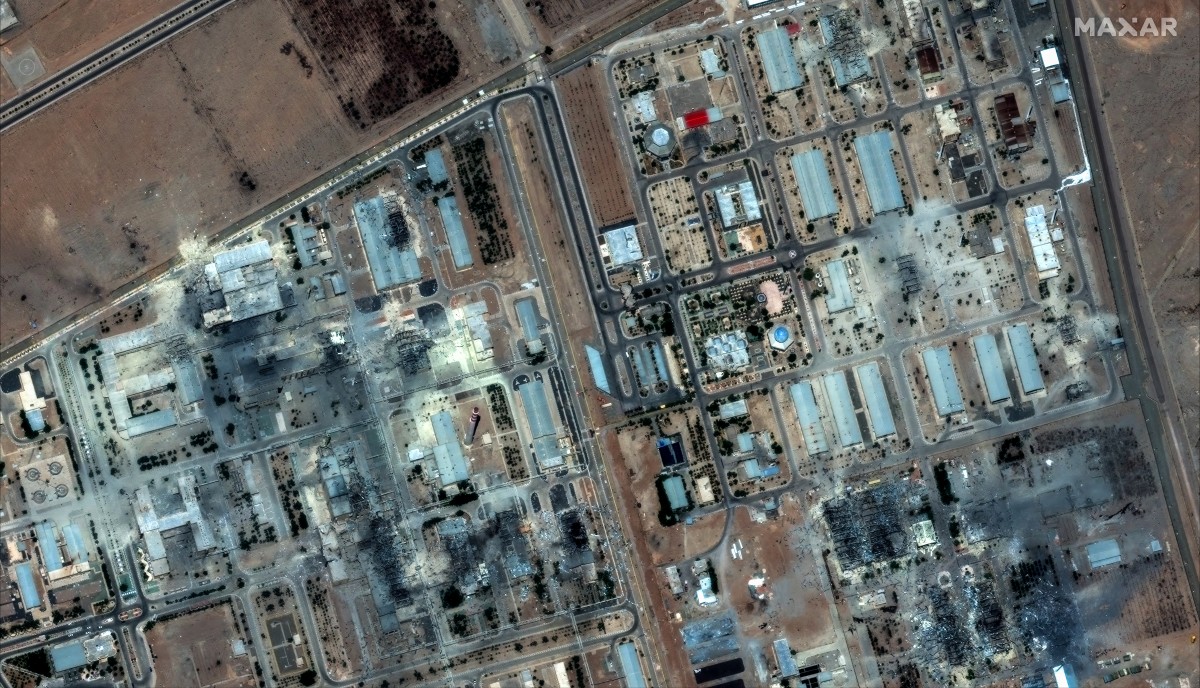As tensions escalate between Iran and Israel, and with the United States entering the fray by bombing Iranian nuclear facilities, the Middle East has entered an unprecedented phase of collective anxiety over the threat of nuclear radiation. The recent strikes that hit enrichment sites in Iran, as part of what was called Operation Midnight Hammer, have revived nightmares of radioactive leaks reminiscent of Chernobyl or Fukushima—even if the technical and environmental conditions differ. This nuclear tension now poses a threat to the environment and public health across neighboring countries, prompting a serious question: How can we protect ourselves in the event of an actual radiation leak?
In this context, environmental journalist and specialist Mustafa Raad told Al-Safa News that the danger of radiation isn’t limited to the site of the explosion or strike. It spreads through wind, water, and soil, putting border regions of countries like Iraq, Jordan, the Gulf states, and Lebanon at risk of radioactive contamination—even if only mildly. He added that the greatest risk citizens face is the lack of prior awareness. “The problem isn’t just the disaster itself, but the ignorance of protective measures,” Raad noted, emphasizing that knowledge and awareness form the first line of defense in the face of such catastrophes.
Signs of this concern have already appeared in official responses from neighboring countries. Jordan announced it has raised the alert level at its network of radiation monitoring stations along its borders, while stressing that no leaks have been detected so far. Jordan’s Ministry of Environment confirmed it is closely monitoring the situation in cooperation with the International Atomic Energy Agency (IAEA) and has an emergency plan ready for activation should any radioactive incident occur. Saudi Arabia and other Gulf countries have adopted a similar stance. The Saudi Nuclear and Radiological Regulatory Commission issued a statement confirming that its monitoring equipment has detected no signs of radioactive contamination and that no direct threat currently exists to the Kingdom.
But the absence of an immediate threat doesn’t mean the danger should be underestimated. Experts warn that one of the biggest mistakes is to rely solely on official data without taking individual precautions. This is where the need arises to follow a series of protective measures that can help limit radiation exposure if a leak occurs. These include staying indoors in buildings with thick walls upon hearing a radiation alert, sealing doors and windows tightly, switching off ventilation systems that might draw in outside air, and avoiding the use of exposed or potentially contaminated water. People are also advised to prepare a “radiation emergency kit” containing iodine tablets (to protect the thyroid gland from absorbing radioactive iodine), air-purifying masks, bottled water, and alternative power sources.
In addition, science-based media and public awareness outlets play a vital role in educating the public about nuclear risks. Mustafa Raad stresses the importance of the ministries of environment and health working together with environmental media to provide daily bulletins explaining radiation levels, protection methods, and evacuation plans where applicable. “The fight against radiation doesn’t take place in nuclear plants alone—it also happens in people’s minds,” he said.
As the Israeli-Iranian war drags on, anxiety is not limited to the moment of a strike; it extends to the long-term environmental consequences. Even if no major radiation leak occurs, the mere presence of the threat has a harmful psychological impact, fueling fear, displacement, panic buying, and disruptions to food supply chains.
For this reason, prevention is not a choice—it is a necessity. Governments and communities must treat the radiation threat as a real and present danger and prepare accordingly, starting now. Just as wars are fought with missiles, saving lives is fought with knowledge, awareness, and discipline.
In the end, as the region remains on high alert for further escalation, nuclear radiation protection remains a shared responsibility—one that starts with the state and extends to every individual. With the risk of nuclear escalation growing, the question is no longer if a leak will happen, but whether we are ready if it does.
Please post your comments on:
comment@alsafanews.com
 Politics
Politics













